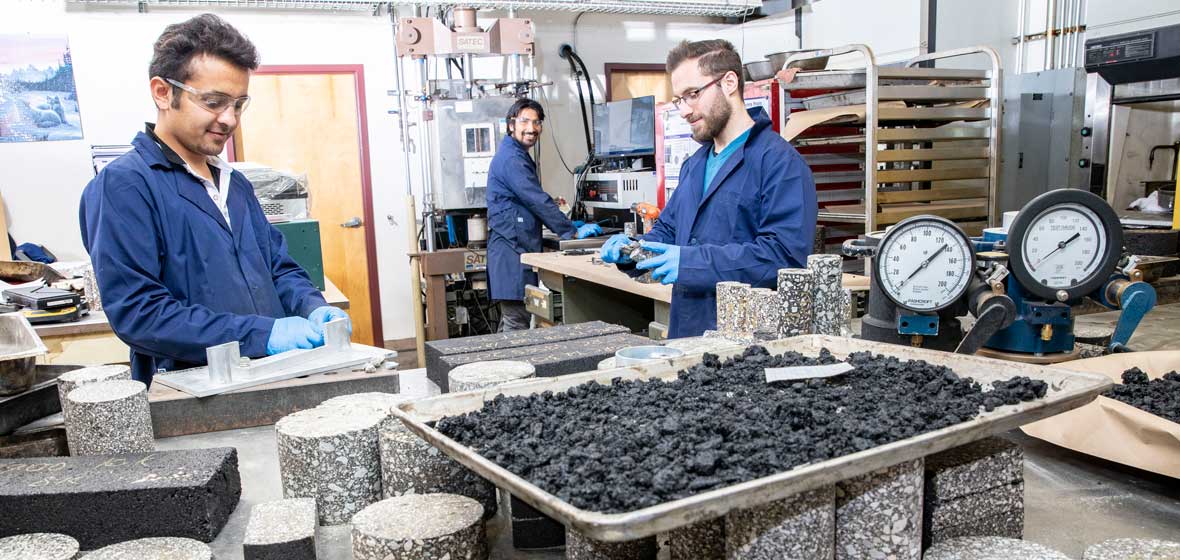When most people think about the environment, they may not think about how materials such as pavement are recycled.
The Western Regional Superpave Center at the University of Nevada, Reno, is one of five centers created by the Federal Highway Administration to implement superpave technology. As a part of pavement engineering and science, the center offers strong academic and research programs for students looking to work in that field, while also promoting sustainability.
Peter Sebaaly, the director of the center and a professor of civil engineering, works with two other faculty in pavement engineering and science, Elie Hajj and Adam Hand.
Recycled asphalt pavement leads to earth-friendly practices
“There are three things that are considered to be environmentally friendly that we do,” Sebaaly said. “The first is we recycle old asphalt pavements inside the new.”
Sebaaly said that pavement obtains a lot of damage because of cars and trucks using it, so its average lifespan is twenty to twenty-five years. He said that old asphalt can be recycled into new pavements, and all of it is used. This prevents waste and helps preserve both the environment and the roads.
“There are four-and-a-half million miles of roads in the United States, and 95 percent of them are asphalt,” Sebaaly said. “Recycling asphalt pavement is encouraged here in Nevada, and everywhere else.”
Recycling old tires can give them new life
The second environmentally friendly technique that the center uses is recycling old tires into asphalt. Described by Sebaaly as a “very natural process,” tires are ground up and placed into the asphalt.
“Tires are a product that would go to the dump once they’re done being used, but now it gets put into a natural process where almost 50 percent is now replaced, and it doesn’t hurt the asphalt or the road. It’s a win-win situation,” he said.
Reducing the high production temperatures can also help save energy
The third way researchers are reducing the environmental cost of pavement happens at the production plant. Typically asphalt and its aggregates are headed to 350 degrees Fahrenheit, which requires a high amount of energy. University researchers are using additives to reduce the production temperature by 100 degrees, which saves about 30 percent of the energy typically used in production.












